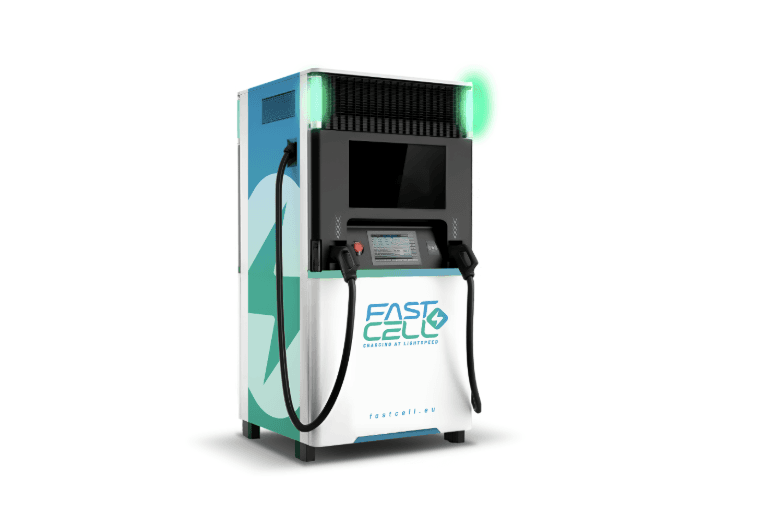Solution for grid congestion: mobile fast charger with battery
Fastcell launches innovative mobile fast charger with integrated battery.
Published on August 19, 2025

Team IO+ selects and features the most important news stories on innovation and technology, carefully curated by our editors.
The Dutch company Fastcell is introducing an innovation in the field of electric charging: a mobile fast charger with an integrated battery that can be connected to a regular low-power three-phase power connection. The company thus offers a solution for businesses and locations that are struggling with grid congestion and are looking for a way to charge electric vehicles quickly.
Fastcell's fast charger is suitable for charging passenger cars, vans, and trucks. Its mobile nature means that the charger can be used at any desired location without the need for a costly or lengthy application for a high-power connection. The integrated battery buffers consumption, avoiding peak loads on the grid.
Smart charging solution for the whole country
With its innovation, Fastcell is responding to one of the biggest challenges of the energy transition: the limited availability of grid capacity. Companies that want to electrify their fleets or offer services to electric vehicle drivers often face long waiting times or high costs for upgrading their grid connections.
Ready for the future
“The demand for smart, scalable charging solutions is growing explosively,” says Remco van der Linden, Director of Fastcell. “With our mobile fast charger, we offer a solution that can be deployed immediately, grows with the customer's needs, and at the same time reduces the pressure on the electricity grid. This makes electric driving and charging accessible in places where it was not possible before.”
